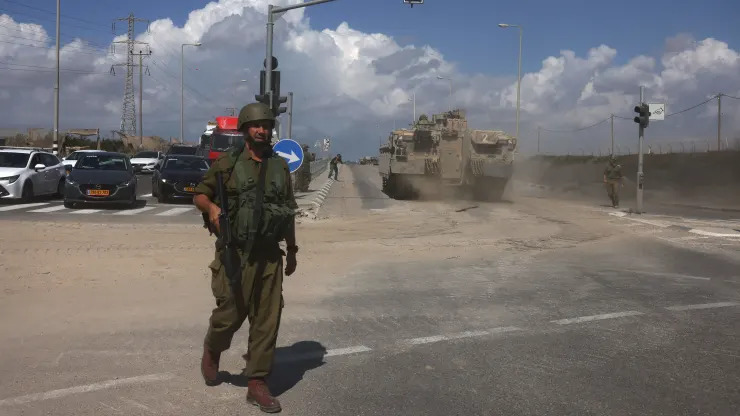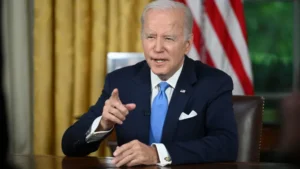Gaza Crisis: In the heart of a deepening crisis, the United Nations Palestinian refugee agency raises a distressing alarm. Aid workers in the Gaza Strip find themselves in a precarious situation, with the ability to sustain humanitarian operations hanging in the balance. The root cause of this dire situation is the pressing need for new supplies to be allowed into this besieged enclave.
Amidst the ongoing turmoil in the Gaza Strip, the situation has reached a critical juncture. The UN Palestinian refugee agency’s recent warning serves as a stark reminder of the mounting humanitarian concerns in this beleaguered region. This article navigates through the latest developments, from Israel’s military actions to international diplomatic efforts aimed at averting a further escalation of the crisis.

Menahem Kahana | Afp | Getty Images
Read more: CEO of Pioneer Natural Resources Warns of Higher Oil Prices if Iran Enters Hamas-Israel War
Humanitarian Operation at Risk
The UN Palestinian refugee agency’s announcement has sent shockwaves through the international community. The agency has signaled its inability to continue essential humanitarian operations in Gaza unless a fresh influx of supplies is allowed. The consequences of this predicament could be devastating for the already vulnerable population in the Gaza Strip.
Israel’s Response and Evacuation Orders: Gaza Crisis
On the other side of the conflict, Israel’s military has remained resolute in its approach. Calls for residents in northern Gaza to relocate to the south have been met with a promise to counter Hamas with increased force. To facilitate the evacuation, the Israel Defense Forces have announced a temporary cessation of military operations along the designated route.
Read more: President Joe Biden’s 2024 Re-Election Fundraising and Challenges
International Diplomacy and Aid Efforts
The evacuation orders have drawn criticism from numerous humanitarian agencies. However, diplomatic negotiations have been in motion. Following discussions between Israeli Prime Minister Benjamin Netanyahu and U.S. President Joe Biden, an agreement was reached to renew water supplies to parts of southern Gaza. This development, while a step in the right direction, is a reminder of the delicate balance between humanitarian aid and political tensions.
Global Calls for Peace and Support
World leaders are actively engaged in averting a broader conflict in the Middle East. China’s Foreign Minister Wang Yi, in a series of weekend calls, urged Israel to end what it considers collective punishment of Palestinians in Gaza. The need for a peaceful resolution is paramount, as the crisis continues to escalate.
In the United States, Senate Majority Leader Chuck Schumer has pledged swift action to push through a military aid package to assist Israel in its battle against Hamas. This underscores the importance of international support in this ongoing crisis.
Humanitarian Relief and Diplomatic Solutions
The U.S. Embassy in Israel has also taken steps to aid Americans and their immediate family members located in the northern Israeli port city of Haifa. Departure via sea to Cyprus has been arranged to ensure their safety.
U.S. Secretary of State Antony Blinken is actively involved in diplomatic efforts. He met with Saudi Arabia’s Crown Prince Mohammed bin Salman and is expected to work on a deal to grant safe passage for Americans in Gaza through the Rafah gate, the sole crossing between Egypt and the Gaza Strip.
Conclusion
The Gaza crisis continues to escalate, posing a severe humanitarian challenge. The critical need for aid and the delicate balance of international diplomacy underscore the urgency of the situation. As the global community watches and reacts, the hope remains for a peaceful resolution to this complex and multifaceted crisis.


